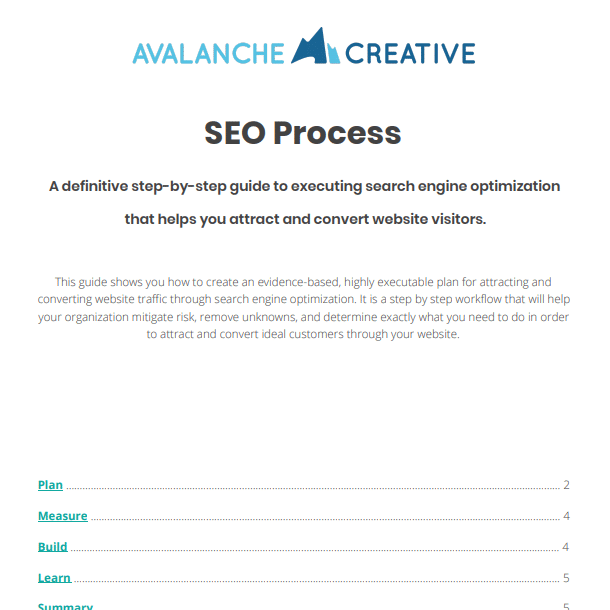Using Keywords for SEO: A Complete Guide
Category: Guide, Keyword Research, SEO Fundamentals | Tags:
Table of Contents
What Are Keywords?
Keywords are the foundation of SEO. They are the terms people type into their Google search and what Google uses to see if a webpage matches their search. Using great keywords spread throughout your content is vital to improving your SEO.
What Are Long-Tail Keywords?
Have you ever typed a search word into Google and found the results were a bit too broad and weren’t giving you the result you were looking for? If so, you probably performed a second search, with additional keywords to narrow down your results.
The first search is called a fat head keyword—short, general, and high volume—while the second search, the long-tail keyword, contains more details and specificity.

While “tomato plant” may see a high volume of monthly searchers, few of those searchers are likely to be interested in what your specific webpage has to offer. They might be looking for general information, where they can buy seeds, or how to keep local wildlife from eating their plants. If your business is selling fertilizer, most of those searches won’t apply to you, and you won’t see the kind of traffic that will increase sales.
By gearing your SEO towards the long tail keyword, “why are tomato plants turning yellow,” you’ll be able to target the specific users who are most likely to be interested in your webpage and your specific business.
Also, if you’re able to put out enough great content which targets those long-tail keywords, Google will take notice. Over time, you can start ranking for some fat head keywords as well.
How SEO Keyword Ranking Works
Every time you enter a search into Google, it runs through its massive catalog of webpages to find which ones match the search keyword. Google then ranks the results according to a complex (and secret) algorithm.
Google’s algorithm takes into consideration how many times the keyword appears on the webpage and where it appears, among other factors. Over the decades, Google’s algorithm has grown smarter, allowing it to recognize similar keywords and account for different phrasing.
How Local SEO Affects Keyword Rankings
Google typically knows where individuals are when they conduct a search and adjusts its results accordingly.
Let’s say you’re looking for a pet groomer in Grand Rapids. Did you click allow Google to see your location when you entered your search? Even if you didn’t, have you searched for other items, like shops and restaurants, in Grand Rapids before? If so, Google will rank pages with keywords for Grand Rapids higher in its results.
Choosing the Best Keywords for SEO
For every content piece Avalanche creates, our SEO experts research the best keywords to climb Google’s search results page. We identify long-tail and local keywords and conduct competitor keyword research before choosing the best keywords to include in our content pieces.

Using Empathy to Determine Keyword Intent
At Avalanche, we pride ourselves on being “evidence-based, empathy built.” That means conducting industry research for each of our clients to determine how we can help their business. It also means using empathy to understand what our clients’ potential customers are really looking for when they search. We work to identify those long-tail keywords your competitors are missing and bring in not just more traffic, but the right traffic.
Using Keywords in Content Writing
Even if your webpage is full of the right keywords, it won’t matter if you haven’t created great content that provides value for its users.
Google tracks how long each person stays on a webpage and how far they get before bouncing back to the search results page to try a different option. If a large portion of a webpage’s visitors don’t like what they see and quickly hit the back button, that webpage will start to fall in Google’s rankings.
Although keywords are an important foundation for lead-generating content, there is a lot more that goes into building webpages that engage and satisfy searchers.
How Many Keywords Should Be Used for Each Page?
The number of targeted keywords will vary with each piece. Every keyword brings in a different volume of search traffic and has a different level of competition from other websites. Avalanche typically identifies five to 10 keywords to target for each page and uses each one differently, depending on how effective it will be at improving SEO.
What Is Keyword Stuffing?
Keyword stuffing is when webpages repeat the same keyword over and over again in an attempt to improve their SEO ranking. Over the years, Google caught on to the practice and found it was causing webpages with poor content to float to the top of the search results page.
Now, Google’s algorithm is on the lookout for keyword stuffing and will penalize websites that use the practice on their search results page. There’s a fine line between keyword targeting and keyword stuffing—a professional SEO agency can make sure you’re on the right side of the line.
Discover the Best Keywords for Your Industry
Are you ready to start using great keywords to improve SEO for your business? Contact us, and we’ll show you how Avalanche Creative can get you more traffic and conversions through SEO.
What Are the Best Keyword Research Tools?
At Avalanche, we primarily use SEMrush, since its database of more than 20 billion keywords and 808 million domains allows us to break down the metrics behind each keyword. It also allows us to conduct competitor keyword research, look at what keywords websites are paying to rank for and get a better sense of what searchers are looking for.
Other research tools include Google Keyword Planner, Ahrefs, and Ubersuggest.
How Do I Find Local Keywords?
Using tools like SEMrush, you can filter keywords according to your location. You can also type a keyword with a location and see what similar suggestions might pop up. It can also be helpful to enter your existing domain or webpage into SEMrush and see if your current traffic is using local search terms. Maybe you’re picking up traffic from an area you weren’t previously aware of.
What Keywords Are Popular in My Industry?
It can be hard to sift through the data to find keywords that actually matter to your industry. Avalanche Creative offers free lists of keywords for companies in a variety of industries, including landscaping, mental health, and dentistry.
Ready to Put Your SEO to Work?
Understanding keywords is just the start; turning them into traffic, leads, and revenue is where the real growth happens. At Avalanche, we help home service businesses across multiple industries get found online and connect them with the right customers.
Whether you’re in landscaping, HVAC, roofing, or construction, our SEO strategies are tailored to your industry and designed to drive measurable results.
Don’t just optimize, grow. Contact us and let’s talk about how we can help your business not only get found online, but also increase leads.
Share this article:
The Avalanche Email: Fun. Simple. Educational. No Selling.
Learn Result-focused SEO & Content
Join over 2,272+ others who get one email every Wednesday with simple instructions on how to get more website traffic and leads through SEO and content marketing. (Learn more about the email)
Keep Learning
Creating the Perfect SEO Content Template in Google Docs
Learn how to create an SEO Content Templates in Google Docs to help drive new traffic to your website from the search engines. SEO Content Templates provide specific recommendations and directives for creating new content on your website with the purpose of improving your SEO.
How To Show Up in Gemini (And Win More Local Jobs)
Show up in Gemini when homeowners search for landscaping services. Build the right signals on Google and your website to win more qualified local jobs.
How to Run Google Ads for Landscapers: A Complete Guide
Learn how to set up Google Ads for landscapers, attract qualified leads, and win more local jobs with this step-by-step guide.
🏔️ Watering > Planting New Seeds
Your next marketing win may already be on your site. Learn how to optimize existing pages for better rankings, traffic, and results.
The Recipe vs. The Meal
Your customers buy the experience, not the product. Discover a simple way to shift your message from ingredients to the full meal.
What’s the Best CMS for Landscaping Businesses?
Compare the best website platforms for landscapers. Learn the pros and cons of Wix, Squarespace, and WordPress, and why WordPress is best for long-term SEO.




